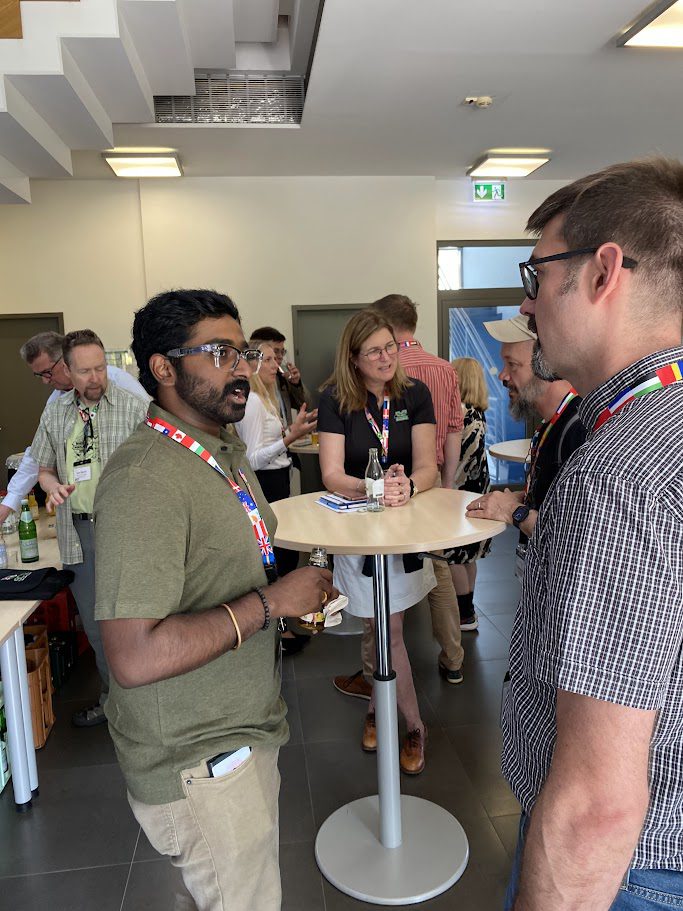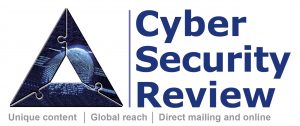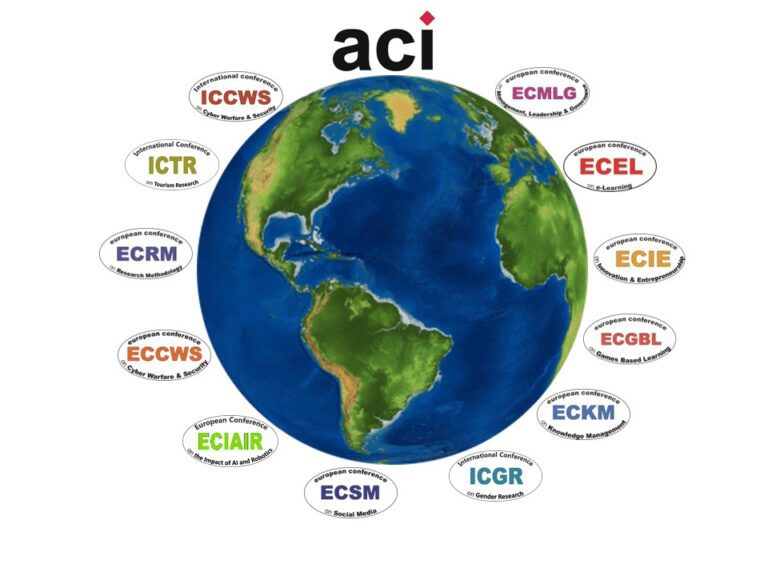29-30 June 2026


Nottingham, UK
ECCWS 2026
25th European Conference on Cyber Warfare and Security
Call for Papers

- Academic Papers
- Case Studies
- Work in-Progress Papers
- PhD Papers
- Masters Papers
- Posters and Presentations
- Non- Academic or Practitioner Contributions
Aims and Scope
ECCWS provides a comprehensive platform for the exploration and discussion of the complex and evolving challenges in the fields of cyber warfare and cybersecurity. It seeks to bridge the gap between academic research, practical applications, and policy-making, fostering interdisciplinary collaboration and the exchange of ideas. The conference focuses on both theoretical and applied aspects of cybersecurity and cyber defence, with an emphasis on the implications for national security, military strategy, and global stability.
Topics Covered
The call for papers for the ECCWS conference asked for contributions that considered the following topics. In addition, the committee welcomed papers on a number of specialist mini-tracks which can be seen at the end of this list.
Cyber Warfare Strategies and Tactics
- Offensive Cyber Operations
- Defensive Cyber Operations
- Cyber Deterrence and Cyber Power.
Cyber Defence and Security
- Threat Detection and Incident Response
- Security Architectures
- Vulnerability Assessment and Management including pentesting
Cyber Threat Intelligence
- Adversary Tactics, Techniques, and Procedures (TTPs)
- Threat Intelligence Sharing
- Advanced Persistent Threats (APTs).
Critical Infrastructure Protection
- Protection of Energy, Water, and Transport Systems
- Financial Sector Security
- Telecommunications Security
Military Applications of Cyber Technologies
- Cyber Command and Control Systems
- Cyber-Physical Systems in Defence
- Information Warfare and Psychological Operations.
Legal and Ethical Issues in Cyber Warfare
- International Law and Cyber Conflict
- Ethical Dilemmas in Cyber Operations
- Cyber Espionage and Sovereignty.
Emerging Technologies and Innovations
- Artificial Intelligence in Cybersecurity
- Quantum Computing and Cybersecurity
- Blockchain for Cybersecurity
Cybersecurity Education and Training
- Military Cyber Training Programs
- Cybersecurity Curriculum Development
- Capacity Building in Cybersecurity
Policy, Governance, and International Cooperation
- National Cybersecurity Strategies
- International Cyber Norms and Agreements
- Public-Private Partnerships in Cybersecurity
Cybercrime and Law Enforcement
- Digital Forensics
- Countering Cybercrime
- Legal Frameworks for Cybercrime
Mini Tracks
Interdisciplinary Research in Cybersecurity
Mini Track Chair: Dr. Char Sample, Marshall University, USA
The dynamic and interconnected nature of cyber security touches and influences many aspects of life. This inter-relatedness suggests that other disciplines might influence, or even possibly impact, cyber events. For example, geo-political events, environmental events, culture, psychology or economic disciplines may offer new ideas on how cyber events are viewed and understood. These disciplines also, provide models and frameworks that, when applied to cybersecurity may possibly provide new solutions to long standing challenges. This track is dedicated to crossing the traditional disciplines of academia and examining cyber events within the context of another academic discipline. Topics of interest include, but are not limited to:
- Decision science and cybersecurity
- Data science in cybersecurity
- Natural disasters and cyber events
- Conflict and cyber events
- Environmental resources and cyber events
- Financial events and cyber events
- Cyber-Physical systems security
- Complexity modelling in cybersecurity
AI for Cyber Defence and Securing AI
Mini Track Chair: Dr. Hossein Abroshan, Anglia Ruskin University,
Artificial Intelligence (AI) now shapes both sides of cyber conflict. This mini track invites work that (1) applies AI to defend: detecting, preventing and responding to malware, phishing, fraud, APT operations and cyber-enabled information warfare across enterprise, OT/ICS and critical infrastructures (e.g., military contexts), and (2) secures the AI itself: hardening models, data, and pipelines against AI attacks such as poisoning, backdoors, model extraction, jailbreaks, prompt-injection, and supply chain compromise. We particularly welcome studies that bridge research and practice for national-security and mission-critical environments: graph and multimodal learning for threat intelligence; LLMs and agentic systems for SOC workflows; privacy-preserving and federated analytics for sensitive data; robust evaluation, red teaming and benchmarks; and provenance, governance and assurance for AI components in the field. Submissions may include empirical results, reproducible tools/datasets, novel AI-powered solutions, and policy/operational insights grounded in real deployments. Our goal is to surface methods that measurably enhance defender advantage and confidence in trustworthy AI under adversarial pressure, aligning with ECCWS’s focus on cyber warfare, critical infrastructure, and global stability.
Topics of interest include, but are not limited to:
- AI for threat detection and threat intelligence: ML/DL pipelines for malware, phishing, fraud, APTs detection, and AI for threat intelligence.
- Security and privacy of AI: poisoning, backdoors, model extraction/MIA, jailbreaks, prompt-injection defences, etc.
- AI supply-chain assurance: dataset/model provenance, SBOMs for models, RAG/data-layer hardening, evaluation.
- Federated and privacy-preserving defence: FL, DP, secure enclaves for cross-org intrusion detection and OT/ICS.
- Evaluation and red teaming: attack simulations, benchmarks, metrics for robustness, safety, and mission impact.
- Operationalisation: deploying and governing AI in SOCs/defence—MLOps, auditability, human-in-the-loop.
Satellite Cyber Security
Mini Track Chair: Professor Jill Slay, Adelaide University, Australia
This track examines satellite cybersecurity from a pragmatic perspective, recognizing that the space environment introduces unique challenges to the security domain. It focuses on articulating why space is different—highlighting the ambiguity created by its harsh physical conditions, the need for high-stakes autonomy due to extreme latency, and the uniquely asymmetric attack surface inherent to space systems. The mini track also aims to structure the problem space by organizing analysis and solutions around four key factors: Attack/Prepare, Detect, Protect, and Respond. Participants are encouraged to contribute toward developing or enhancing a strategic roadmap that fosters a cumulative and collaborative research ecosystem bridging the gap between academic innovation and operational needs. Topics of interest include, but are not limited to:
- The Testbed and Data Gap: Overcoming the critical shortage of realistic research infrastructure by developing a federated ecosystem of high-fidelity testbeds
- Securing Next-Generation Communications: Addressing the unique security needs of future space networks
- Building Trustworthy Autonomous Systems: Ensuring that onboard AI and autonomous systems are secure and safe
- Strengthening the System Foundation: Mandating a “secure-by-design” philosophy anchored in hardware
- Establishing a Collaborative Ecosystem: Creating the necessary non-technical structures for progress
Cyber Deception
Mini Track Chair: Dr. Iain Reid, University of Portsmouth, UK
Cyber deception technologies offer a number of ways to increase defences against cyber-attacks. Traditional approaches to cyber deception have focused upon a broad range of honey technologies (e.g. honeypots, honeyfiles, and honeytokens). More recent approaches have sought to develop lures, baits, and tripwires in directing computer network attackers to deceptive environments. The overall aim of these wide range of deceptive approaches has been to disrupt attackers, to deter them from further targeting our computer systems, whilst maintaining the confidentiality, integrity, and availability of our systems. This mini track seeks to explore cyber deception from a socio-technical perspective and welcomes submissions from the technological through to psychological understandings of cyber deception.
Topics of interest include, but are not limited to:
- Defensive cyber deception
- Oppositional human factors
- Cyber deception technologies
- Honeypots
- Decision-making
LLM- and Agent-Driven Forensics, Compliance Audit, and Infrastructure Protection
Mini Track Chairs: Paulo Simões and Tiago Cruz, University of Coimbra, Portugal
The rapid evolution of Large Language Models (LLMs) and autonomous agents is transforming the landscape of digital forensics, compliance auditing, and infrastructure protection. These technologies provide groundbreaking capabilities for automating evidence collection, analysing unstructured data, detecting anomalies, and supporting complex decision-making processes.
However, their adoption also raises new challenges related to trustworthiness, explainability, and regulatory compliance.
Organized under the auspices of the FOCUS-PA project, this mini track aims to convene researchers, practitioners, and policymakers to explore how LLM- and agent-driven approaches can enhance resilience and integrity across critical sectors.
Topics of interest include, but are not limited to:
- AI-assisted forensic analysis and digital evidence management
- Autonomous agents for compliance monitoring and auditing
- LLMs for policy interpretation, standards alignment, and regulatory enforcement
- Infrastructure defense through intelligent anomaly detection and adaptive response
- Security, trust, and explainability in AI-driven forensics and audits
- Case studies and real-world deployments in critical sectors (finance, healthcare, energy, government)
AI-Driven Security and Resilience in Digital Infrastructures
Mini Track Chair: Christoph Lipps, German Research Center for Artificial Intelligence (DFKI), Kaiserslautern, Germany,
The integration of artificial intelligence (AI) into network automation is transforming how digital infrastructures are managed, secured, and defended. AI enables unprecedented efficiency and adaptability, yet it also introduces new complexities, vulnerabilities, and ethical challenges. This MiniTrack seeks original research contributions that critically examine the evolving role of AI in interconnected systems, with particular emphasis on security, trust, and resilience.
We invite work on intelligent security mechanisms such as AI-based intrusion detection, automated threat analysis, and both proactive and reactive defence strategies. Of special interest are contributions exploring the use of generative AI (GenAI) in cybersecurity, for example, to simulate attack scenarios, uncover hidden vulnerabilities, or design adaptive, self-learning defence systems.
Equally central is the question of trustworthiness in AI-driven infrastructures. How can transparency, explainability, and robustness be ensured when autonomous systems make decisions in high-risk environments? What ethical, legal, and technical frameworks are required to guide the responsible deployment of AI in critical digital infrastructures?
Topics of interest include, but are not limited to:
- Intelligent Network Security
- Generative AI in Cybersecurity
- Trusted AI & Trustworthy AI
- Cyber Resilience & Security
- Ethical, Legal and Technical Frameworks
- Security in Wireless Systems
Submit your Abstract now!
Important Dates
| Abstract submission deadline | STILL ACCEPTING ABSTRACTS |
| Notification of abstract acceptance | 21 December 2025 |
| Full paper due for review | 26 January 2026 |
| Notification of paper acceptance (with any requested changes) | 6 April 2026 |
| Earlybird registration closes | 20 April 2026 |
| Final paper due (with any changes) | 4May 2026 |
| Final Author registration date | 25 May 2026 |
Keynote Speakers

Securing the Digital Future: The UK Government’s Approach to Cyber Security

Mapping the Impact of Future & Emerging Technologies on Cybersecurity
Conference Contacts
| Academic Enquiries | Professor Dan Remenyi |
| Submission Enquiries | Carol Carslake |
| Registration Enquiries | Belinda Burchell |
| Other Enquiries | Elaine Hayne |





